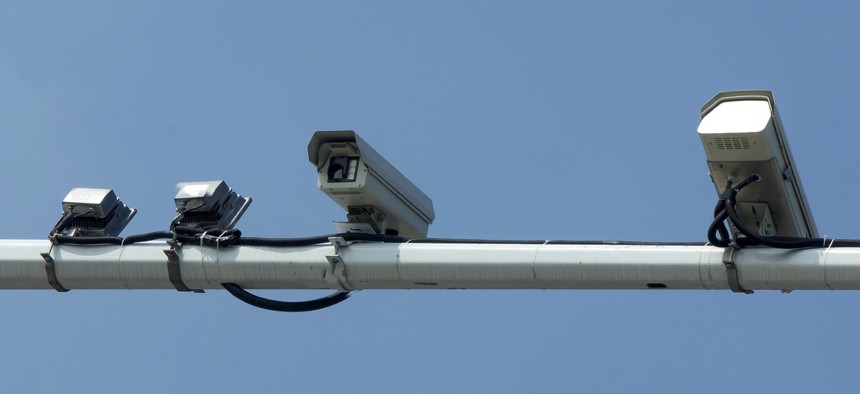Did These States Help Stifle Innovation in 2015?

LIUSHENGFILM / Shutterstock.com
Vote for the best example of policymakers opposing technology in ITIF’s Luddite Award poll.
Several states landed themselves on the Information Technology & Innovation Foundation’s shortlist of “innovation killers” in 2015.
Voting opened Monday for this year’s Luddite Award, given to the “most egregious example of a government, organization, or individual stymieing the progress of technological innovation.”
Four states are named among the 10 nominees: Vermont, California, Wyoming and Ohio.
“The purpose of the Luddite Award is to point out glaring examples of how misunderstood self-interest or misbegotten ideology can stifle progress,” Robert Atkinson, ITIF founder and president, said in the group’s announcement. “It is important for policymakers to recognize the pattern and steadfastly champion innovation.”
For those not familiar with early 19th century English history, the Washington, D.C.-based nonprofit’s award gets its name from the movement led by Ned Ludd to destroy mechanized looms.
Luddism, resistance to the introduction of new technologies, tends to be either interest-based—as with governments backing taxi lobbies in their opposition of disruptive business models like Uber’s—or ideological.
ALPR
A number of states limited law enforcement’s use of automatic license plate recognition (ALPR) technology in 2015, despite its ability to rapidly scan and compare thousands at a time to federal and state criminal databases.
Using ALPR technology, Virginia state police caught the shooter wanted for killing a broadcast reporter and her cameraman on live television.
Vehicle owners aren’t identified unless they’ve been charged with a crime, and both police time and taxpayer money is saved. But groups like the American Civil Liberties Union have raised concerns over people being tracked with ALPR.
Montana and Massachusetts saw bills this year prohibiting or limiting the technology respectively, while Vermont passed a law restricting data retention to 24 hours—reducing its ability to solve crimes and particularly cold cases. An auditing process ensuring the data is used appropriately is instead advised, according to ITIF’s report.
RFID Tags
California Gov. Jerry Brown vetoed a bill in October that would’ve let drivers voluntarily get radio frequency identification (RFID) tags in their licenses, citing privacy concerns.
Legalizing the technology stigmatized as “spy chips” would’ve sped up passage to and from Mexico and allowed the state to catch up with the federal government, which has put RFID tags in all new U.S. passports since 2006.
The ACLU has opposed RFID on the grounds it could lead to increased racial profiling, even though the tags simply store a number tied to a Department of Homeland Security database, which state and local law enforcement doesn’t have access to.
Citizen Science
Collection and analysis of data by the public on behalf of cash-strapped government agencies has improved state and local policy discussions, according to the White House, but Wyoming criminalized citizen science related to land use, reported Slate.
The cause? An ongoing lawsuit between ranchers, who let cows defecate near streams crossing federal lands, and the state chapter of the nonprofit Western Watersheds Project, which alerted the Wyoming Department of Environmental Quality to the presence of E. coli bacteria in water samples at 200 times the legal limit.
Proponents of the legislation argued they were protecting private landowners from trespassing, which the ranchers claim occurred, but its wording prohibits resource data collection even on public land. Critics say that sharing photographic evidence of illegal dumping of hazardous waste with a government agency is now subject to a $1,000 fine and a year in prison.
“If the state wants to shield polluters from regulatory scrutiny, then it should repeal or weaken state environmental laws, not criminalize data collection,” according to the report, because public information has previously benefitted ranchers in helping develop early warning systems for animal disease outbreaks.
Red Light Cameras
Red-light cameras are a proven method of automated traffic enforcement that reduces crashes. But state and local restrictions are on the rise due to populist opposition—most recently in Ohio.
The Buckeye State now requires an officer to witness a traffic violation caught on camera before ticketing, limiting law enforcement’s ability to police other public safety matters.
Reducing any government overreach tied to red light cameras, rather than the technology itself, is best, according to the report, particularly where revenue generation is concerned.
Vote for the worst case of Luddism in 2015 here.
Dave Nyczepir is a News Editor at Government Executive’s Route Fifty.
NEXT STORY: Cities, States Fight Veteran Homelessness






